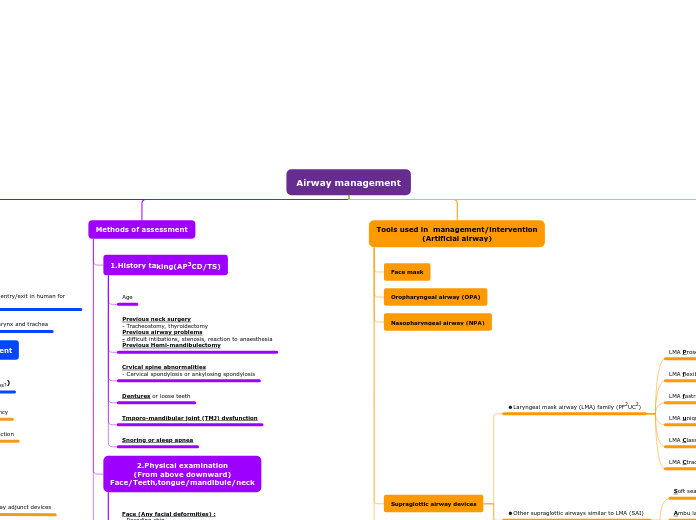por Ziad Hilal 1 ano atrás
198
Airway management
Airway management involves ensuring that the airway, which includes the nose, mouth, pharynx, larynx, and trachea, is open and unobstructed to facilitate effective gas exchange in the lungs.

por Ziad Hilal 1 ano atrás
198

Mais informações
Retrograde intubation
Tracheostomy
Cricothyroidotomy
Fiber optic devices
Endotracheal tube (ETT)
Streamlined pharynx airway liner
Laryngeal tube airway
Perilaryngeal airway
Intubating laryngeal airway
Ambu laryngeal mask
Soft seal LM
LMA Ctrach
LMA Classic
LMA unique
LMA fastrach
LMA flexible
LMA Proseal
Thyroid to hyoid distance (Normally 2 fingers)
Hyoid to mental distance (Normally 3 fingers)
Inter-incisor distance (Normally 3 fingers)
Sterno-mental space
Critical distance is 12.5cm
Thyro-mental space (Normally More than 6.5cm/3fingers)
The blade used during laryngeoscope is called Miller-blade
if less than 6cm => considered difficult intubation
H&N extension (Normally 35ْ )
Mallapati score
b)Simple maneuvers and airway adjunct devices
a) General guidelines
b) assessment of airway protection
a) Assessment of airway patency